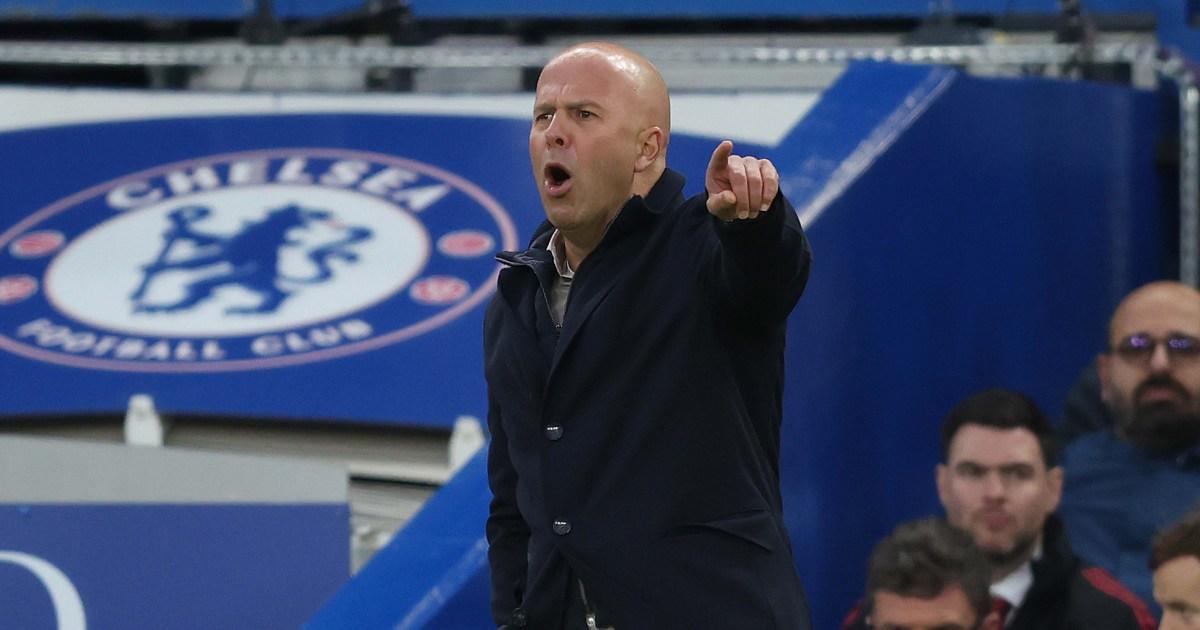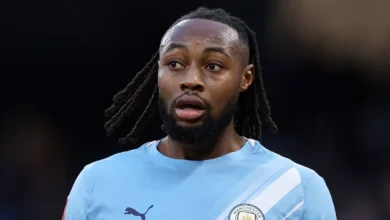Liverpool player told he was ‘frustrating and annoying’ Arne Slot during Chelsea loss

Liverpool fans have seen a lot over the years — moments of glory, heartbreak, joy, despair, and everything in between. But the start of this season, under Arne Slot, has been one of those periods that fans hope to forget quickly. The Reds arrived at Stamford Bridge on a cold October afternoon with hope in their hearts, but after the final whistle, they left in silence, a mix of disappointment and worry etched across their faces. For the third consecutive game, Liverpool found themselves behind, struggling to keep pace, and facing questions that only deepened with every mistake on the pitch.
Chelsea, their London hosts, wasted no time asserting dominance. Moises Caicedo, a player who seems to thrive in moments when the opposition is unsettled, blasted the Blues into an early lead. The stadium erupted, and for Liverpool, the uphill battle had begun before the 20-minute mark. For Giorgi Mamardashvili, making his first Premier League start, it was a baptism of fire. Despite his best efforts, there was little he could do as the ball thundered past him, leaving him with a heavy feeling in his chest and a stern reality settling in — this would be a game to remember, but for all the wrong reasons.
Liverpool had hoped to find a rhythm, to pull themselves together, and fight back. Yet the team seemed to unravel, each mistake compounding the last. The defence, which had been a source of concern in recent weeks, once again looked vulnerable. Central to this concern was Ibrahima Konate. The Frenchman, who many had expected to be a rock in the back, seemed unable to find his usual composure. Every touch looked labored; every movement felt off. Fans watching from home squinted at their screens, wondering if they were seeing what they thought they were seeing. Could it really be Konate, the man they had relied on in so many past moments?
By ten minutes into the second half, the answer became clear. Arne Slot, having seen enough, made a decision that sent ripples through the team. Ryan Gravenberch was brought back into central defence, and Konate was substituted. To any casual observer, it might have seemed abrupt, harsh, or even unfair. But those in football understood what was happening. The manager needed control, precision, and composure at the back. And Konate, for reasons that might have been more than just poor form, was not providing it.
Gary Neville, speaking after the match, didn’t mince words. The former Manchester United legend, with his keen eye for defensive play, explained exactly what had happened. “If you watch Konate on the ball at the start of the second half, he was just walking with it,” Neville said. “It was frustrating and annoying me, and it was obviously annoying Arne Slot as well, and he’s taken him off. He wants to get someone better on the ball at the back. He’s going all in, the Liverpool manager.”
Frustration. Annoyance. These words might seem harsh when describing a player, but for a manager like Arne Slot, they are a reflection of a larger picture — one that involves strategy, responsibility, and the high stakes of Premier League football. Konate’s sluggishness wasn’t just a momentary lapse; it was a symptom of a deeper problem on a day when Liverpool could ill afford even the slightest hesitation. Every second counts in a match like this, and Slot, determined to assert control, acted decisively.
Yet there is always another side to the story. Konate may not have been just tired or off-form; there were signs that he might have been carrying a knock. Observers noted moments when the Frenchman looked labored in his running back, and he was seen stretching his quad after Liverpool regained possession. Football is as much about physical fitness as it is about mental focus, and a slight injury can magnify errors, slow reactions, and shake confidence. If that was the case on Saturday, Slot’s decision to remove Konate was not just about form — it was about protecting a player, managing risk, and making the tough calls that come with the responsibility of managing a team at the top level.
Konate’s season had not begun as he would have hoped. Expectations were high, as they always are for a player of his quality and stature. But football, particularly at Liverpool, is a relentless environment. Mistakes are amplified, scrutiny is intense, and every game is a test of character. The Frenchman’s struggles on Saturday were a reflection not just of a single game but of a difficult start to a campaign that will require resilience, patience, and mental strength.
Liverpool’s defensive options are limited. With Joe Gomez the only other senior centre-back fit and available, Slot does not have the luxury of experimentation. Every substitution carries weight. Every injury magnifies pressure. And yet, the manager’s willingness to make bold decisions — like moving Gravenberch back into central defence — speaks to his leadership style. He is not afraid to make tough calls, even if they are unpopular. He is not afraid to act in the moment when the stakes are highest.
As the match progressed, the frustration was visible not just on the touchline but across the pitch. Players tried to compensate, to cover gaps, to maintain structure, but the rhythm had been broken. Every misplaced pass, every hesitant touch, every failed interception added to the growing tension. Football is a game of moments, and once a team loses its composure, even briefly, it becomes almost impossible to regain control against a team like Chelsea.
Fans watching at home or in the stands could sense the unease. Social media buzzed with commentary, opinion, and speculation. Konate’s name trended almost immediately, with debates raging about whether the Frenchman had failed, whether Slot had been too harsh, and whether Liverpool could overcome this new hurdle. For a club like Liverpool, scrutiny is part of the fabric of existence. Every player, every decision, every result is magnified in a way few other teams experience
Yet there is also empathy among fans who understand the physical toll the game takes. The Premier League is relentless, and players often carry minor knocks or fatigue that the public cannot see. Konate, at just 26, is still developing, still learning the nuances of managing form, fitness, and pressure in an unforgiving environment. Observers noted the effort he made despite the visible discomfort, the commitment to tracking back, and the resilience to keep playing until the substitution. In many ways, his early-season struggles reflect the challenges Liverpool faces as a whole — a team striving to find rhythm, cohesion, and identity under a new manager.
Slot, for his part, remains focused on solutions. The manager is known for his analytical approach, attention to detail, and willingness to adapt. Decisions like substituting Konate are not punitive; they are tactical, reflective of a mindset that prioritizes the team over individuals. Football is a collective sport, and in moments of crisis, the manager’s vision must prevail over individual performance anxieties. Slot’s boldness on Saturday underscores his commitment to this principle.
For Konate, the path forward is clear, if not easy. He must regain fitness, rebuild confidence, and prove that he can perform consistently at the highest level. The Frenchman has the talent, the experience, and the mental strength to overcome these obstacles, but it will require focus, resilience, and support from his teammates. Football is as much about recovery from setbacks as it is about skill, and Konate’s ability to respond will shape not only his season but Liverpool’s defensive stability in the months ahead.
The early-season struggles at the back are not just about one player. They reflect systemic challenges within the squad, including injuries, limited depth, and the pressures of playing in multiple competitions. Slot’s task is immense: to restore confidence, to optimize formations, and to extract maximum performance from a squad facing high expectations and intense scrutiny. Every choice, every substitution, and every adjustment is magnified in the unforgiving spotlight of the Premier League.
As Liverpool look ahead, lessons from Saturday are clear. Concentration cannot falter, particularly in central defence. Injuries must be managed carefully. Decisions must be made decisively. And above all, resilience must be nurtured within the squad, from the youngest player on the bench to the most experienced captain on the pitch. The Reds cannot afford to let frustration, even in a single player, dictate the flow of a match, particularly against teams capable of exploiting the slightest lapse.
For fans, the story of Konate’s substitution is both cautionary and hopeful. It is a reminder of the high stakes of top-level football, where talent alone is not enough. It is also a story of human effort — a player giving his all, managing discomfort, and being supported by a manager willing to make the hard calls for the greater good. The narrative is not finished; it is evolving, and the season ahead promises more drama, more challenges, and more opportunities for redemption.
As the Reds prepare for upcoming matches, the spotlight will remain on both the squad and their manager. Slot’s decisions will continue to be scrutinized, Konate’s form will be analyzed, and the team’s ability to respond to early setbacks will be tested repeatedly. Yet, in the heart of every challenge lies opportunity. The chance to grow stronger, to rebuild confidence, and to emerge as a cohesive unit remains alive — if the players and coaching staff are willing to embrace it.
The story of Liverpool’s season, beginning with moments like the Chelsea loss and Konate’s substitution, is not merely about defeat. It is about resilience, leadership, and the pursuit of excellence in an environment that demands nothing less. Every decision, every substitution, and every tactical adjustment reflects the intricate balance required to compete at the highest level.
Konate’s journey, within this larger narrative, is emblematic of professional football itself — full of highs and lows, public scrutiny, physical strain, and emotional intensity. His response to this early challenge will define not only his individual growth but also Liverpool’s defensive stability in the critical months ahead. Slot’s choice to remove him was a statement of intent: the team comes first, and no single player, no matter their talent, is above the collective need of the squad.
As fans, analysts, and players reflect on the Chelsea loss, the lessons are manifold. Professionalism, adaptability, and mental strength are just as crucial as physical skill. Decisions made in real time, under pressure, can alter the course of a match, a season, and a career. And while the headlines may focus on frustration, annoyance, or mistakes, the underlying story is one of growth, learning, and resilience.
Liverpool’s season is still young. The challenges are real, the pressure is immense, but the potential for recovery is equally strong. With leadership from Arne Slot, lessons learned from early setbacks, and the dedication of players like Ibrahima Konate, the Reds have the foundation to turn adversity into strength. Football is never just about a single match; it is a journey, and the journey has only just begun.
Saturday at Stamford Bridge was a painful reminder of how high the stakes are, how quickly momentum can shift, and how crucial every decision is. Yet it also offered glimpses of what is possible — moments of determination, flashes of skill, and the unwavering drive to compete at the highest level. For Konate, Slot, and Liverpool as a whole, the narrative continues. The next match, the next training session, and the next opportunity to improve all matter immensely.
Liverpool fans know this story well: heartbreak and triumph are never far apart. The season ahead promises both, and the way the team responds to setbacks like Konate’s early substitution will define not just results on the pitch, but the character and identity of the squad. Every challenge, every frustration, and every decision is part of the greater story of Liverpool’s pursuit of excellence in English football.















